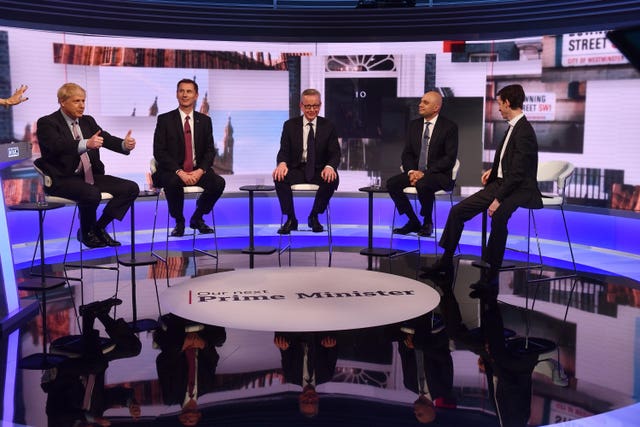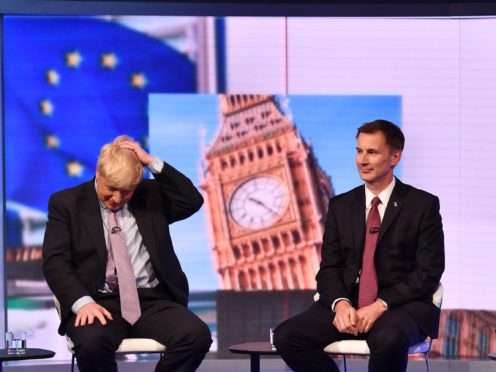The BBC will consider “additional steps” in its vetting process for guests following a debate between Conservative leadership candidates.
Media watchdog Ofcom received 31 complaints about Our Next Prime Minister, which featured questions from an imam who had made allegedly anti-Semitic comments online.
The BBC has defended its vetting process, saying that such programmes are likely to attract politicised contributors and unified opinion on political broadcasts would be “odd”.

However, further action may be considered in any similar shows following criticism of the Tory leadership debate which aired on Tuesday.
The programme featured questions from members of the public who appeared on a large screen to quiz the leadership hopefuls.
The choice of guests has drawn criticism from viewers over partisanship, and an imam who asked the contenders about Islamophobia.
Abdullah Patel has been suspended from his mosque following the emergence of past tweets in which he said “every political figure on the Zionist’s payroll is scaring the world about Corbyn”.
He also shared an image endorsing the relocation of Israel to the US as a way of solving the Israel/Palestine conflict.
"We've set out five chairs, but it might be that we only need four, or three… or one"
Emily @Maitlis explains how #BBCOurNextPM Tory leadership debate will work
How to watch: https://t.co/ZMpRZNlnozLatest updates: https://t.co/TPPcaXT9S8 pic.twitter.com/W5pTYiwb2p
— BBC Politics (@BBCPolitics) June 18, 2019
A BBC spokeswoman said: “This programme was an important contribution to the current political debate. It was watched by a big audience and the candidates to be the next Prime Minister were asked legitimate questions which our audience will have expected to have answered.
“We have a long history of producing successful debate programmes and this was no different. We did however, adopt a different format for this programme and we will look at whether there are additional steps we might take on vetting and transparency should we repeat it in the future.
“We of course have long established procedures for programmes that we make on a regular basis, and it is important to remember that a political debate programme involving members of the public will, by its very nature, attract people interested and engaged in issues who may well have been active in politics.
“It would be odd only to have programmes involving the public where everyone agrees with the politics of those they are questioning.”
Our Next Prime Minister was watched by more than five million viewers and the corporation said the hour-long broadcast from 8pm was the “best performing programme of the night across all channels”.
It is understood that complaints over the programme were largely concerned with the overall show, with fewer relating to the selection of guests who asked questions.
The BBC has been further criticised for adding to the problem of anti-Semitism following the leadership debate.
The Board Of Deputies Of British Jew has raised concerned over the broadcaster’s use of language in reporting comments made by Mr Patel on Our Next Prime Minister.
A letter from the organisation to the BBC’s head of news Fran Unsworth has claimed the corporation’s use of “anti-Israel” rather than “anti-Semitic” in its coverage of the imam’s comments was “deeply problematic”.
The letter calls for clearer use of language by the BBC.
It reads: “We are deeply concerned by an apparent editorial decision across the BBC to term the tweet ‘anti-Israel’: on the BBC news website, on Wednesday’s BBC News at Ten and by two journalists on that night’s Newsnight.
“They did so without mentioning the offensive content of the tweet. This is deeply problematic.
“The struggle against antisemitism is hampered by legitimate concerns of the Jewish community being dismissed as mere political disagreements about Israel, and not recognised as actual antisemitism.
“The BBC’s reporting has added to that problem.”
